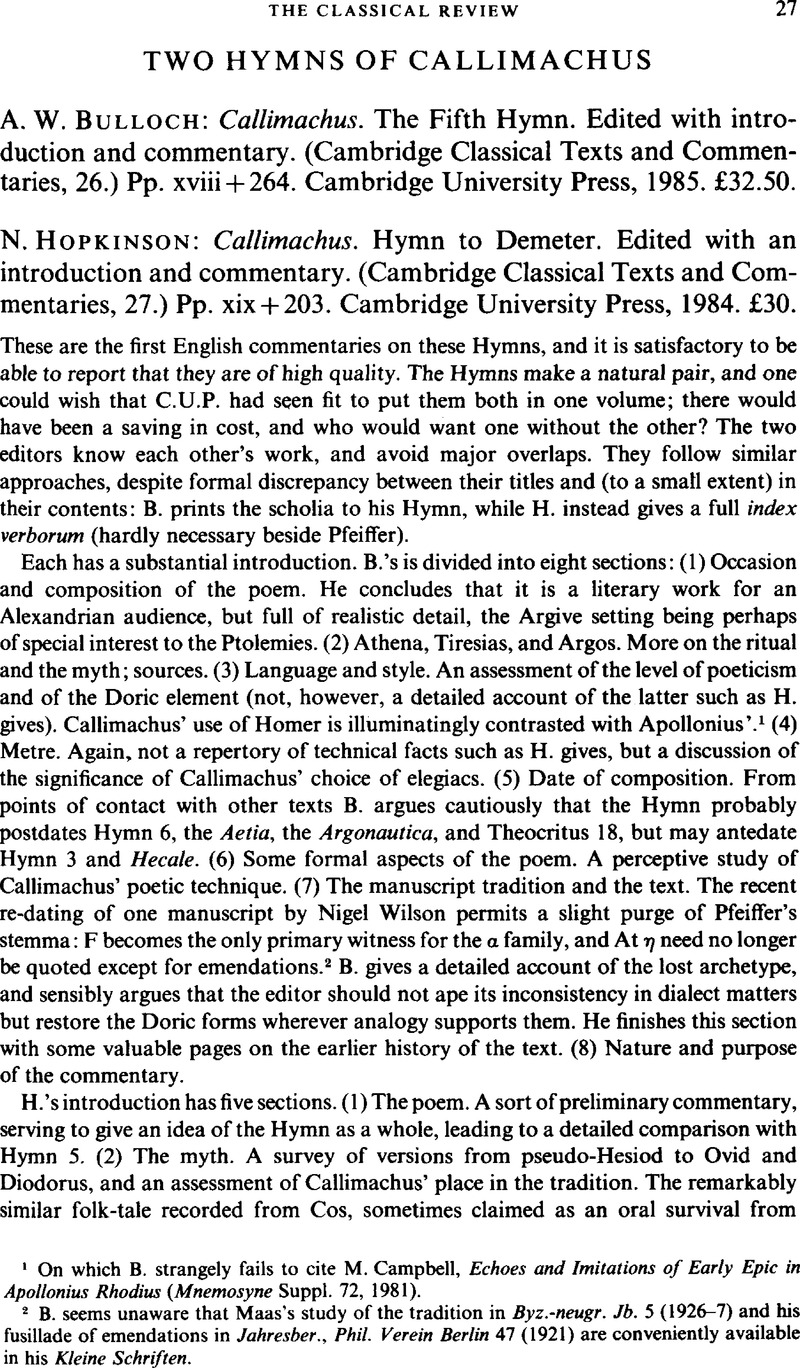Published online by Cambridge University Press: 16 February 2009

1 On which B. strangely fails to cite Campbell, M., Echoes and Imitations of Early Epic in Apollonius Rhodius (Mnemosyne Suppl. 72, 1981).Google Scholar
2 B. seems unaware that Maas's study of the tradition in Byz.-neugr. Jb. 5 (1926–1927)Google Scholar and his fusillade of emendations in Jahresber., Phil. Verein Berlin 47 (1921) are conveniently available in his Kleine Schriften.
3 On p. 54, Hiatus 2, ‘and prepositions’ should read ‘or before prepositions’. The reading adopted at 84 is a noteworthy exception to the rule. A short open final syllable lengthened by initial double consonant is more frequent than here implied; see in this Hymn 11, 28, 30, 60, 67, 76, 136, 138.
4 There is an odd note in the commentary to the same effect.
5 Cf. Meister, K., Die homerische Kunstsprache (1921), 13ff., 36.Google Scholar
6 Wrongly H. ad loc., ‘πωλ- is nowhere attested’.
7 But of course not in Tyrtaeus, nor in Pindar (cf. N. S. Grinbaum, Язьικ лревΗегречесκοй хоровой лириκи (Πиндар)(Kishinev, 1973), 10O–2), nor in Theocritus' epic poems (13.53, 24.76; cf. Wilamowitz, , Textgesch. d. griech. Bukoliker, 99).Google Scholar B. should not have referred to these poets.
8 Schwyzer – Debrunner 626. The Homeric and Euripidean passages there cited are normally printed as questions.